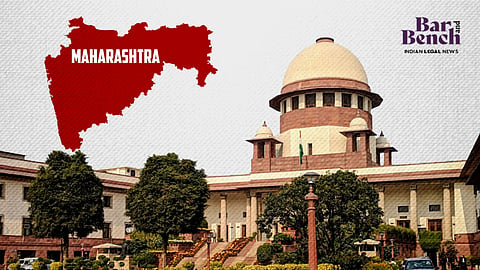
- Latest Legal News
- News
- Dealstreet
- Viewpoint
- Columns
- Interviews
- Law School
- Legal Jobs
- हिंदी
- ಕನ್ನಡ

The Supreme Court on Thursday delivered a split verdict on Maharashtra government’s plea seeking review of its earlier order directing that a Special Investigation Team (SIT) probing the 2023 Akola riots should include senior police officers from both Hindu and Muslim communities [The State of Maharashtra & Ors. vs. Mohammad Afzal Mohammad Sharif].
The case stemmed from the Court’s September 11 judgment which had castigated the Maharashtra Police for failing to register a first information report (FIR) and investigate the assault on a 17-year-old boy during the Akola riots of May 2023.
The Court had termed it a case of “total dereliction of duty.”
In that judgment, a Bench of Justices Sanjay Kumar and Satish Chandra Sharma had ordered that the SIT should probe the matter and it should comprise officers from both Hindu and Muslim communities to ensure transparency and fairness in the investigation.
The State of Maharashtra later sought a review of that direction, arguing that it undermined institutional secularism by requiring religious identity to determine police postings.
Today, the same Bench delivered divergent opinions.
Justice Kumar dismissed the review petition, upholding his earlier direction, while Justice Sharma took a different view, saying the question required reconsideration.
Justice Kumar also rejected the State’s plea for an open court hearing and criticised the manner in which the review request was placed before both judges separately.
"The dubious and unprecedented practice of making separate mentions for seeking such hearing before both the judges on the Bench simultaneously, without disclosing the fact that the other was also being approached, requires to be condemned in no uncertain terms," Justice Kumar said.
He found no merit in the State’s claim that inclusion of both communities in the SIT violated secularism.
Justice Kumar said the earlier direction for a mixed-community SIT was necessary to restore public confidence in a situation where religious bias had prima facie influenced the handling of the investigation.
"As the case related to communal riots, involving Hindu and Muslim communities, and the hues of this case prima facie hinted at a religious bias, it was necessary to direct constitution of an investigation team comprising senior police officers of both communities so as to maintain transparency and fairness in the investigation," he said.
He emphasised that the decision did not offend the principle of secularism but in fact gave it practical effect.
"In such circumstances, constitution of an investigation team comprising members of the communities involved in the communal riot would go a long way in ensuring and safeguarding the transparency and fairness of the investigation to be carried out and there is no impingement of any idealistic principle. Be it noted that secularism needs to be actuated in practice and reality, rather than be left on paper to be enshrined as a constitutional principle," Justice Kumar observed.
Justice Sharma, on the other hand, allowed the State’s request for an open court hearing and held that the limited question raised in the review petition deserved further examination.
"In the considered opinion of this Court, as review and recall has been sought of the judgment to the limited extent that it directs or mandates the composition of the Special Investigation Team (SIT) on the basis of religious identity requires consideration," Justice Sharma said.
Justice Sharma referred to the State’s submission that while the direction may have been well-intentioned, it could conflict with the constitutional ideal of a religion-neutral administration.
He noted that the State had sought review only on that specific point and directed the matter to be listed for further hearing after two weeks.
With the two judges taking divergent positions, the matter will now be placed before the Chief Justice of India BR Gavai for appropriate orders on the future course, including whether it should be referred to a larger Bench.
[Read Order]